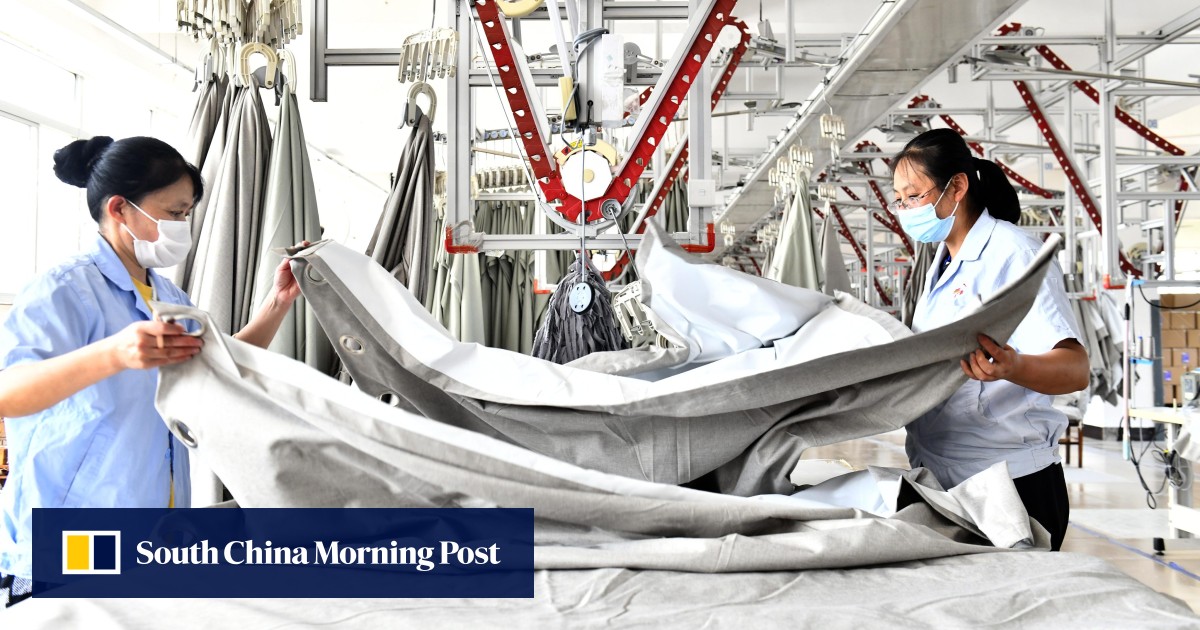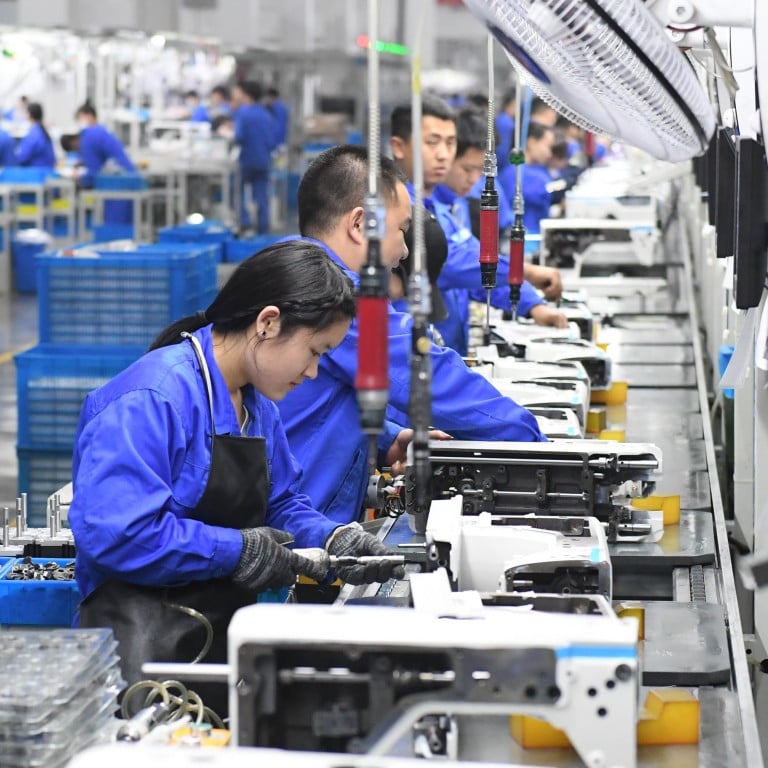Hamartia Antidote
ELITE MEMBER

- Joined
- Nov 17, 2013
- Messages
- 35,188
- Reaction score
- 30
- Country
- Location

‘Hardly a solution’ to age-old overdue payment woes for core of China’s economy
Beijing has pledged to build the private economy, which it views as the backbone of the economy, ‘bigger, better and stronger’, but firms are owed an increasing amount of money from the government and state-owned firms.
- Beijing has pledged to build the private economy, which it views as the backbone of the economy, ‘bigger, better and stronger’
- But in Henan province alone last year, over 9 billion yuan (US$1.2 billion) of overdue payments by local governments and state-owned firms were added

While the private economy contributes over half of the country’s tax revenue and more than 80 per cent of the urban workforce, private sector profits fell by 13.5 per cent in the first half of the year. Photo: Xinhua
Overdue payment problems for China’s private firms are becoming more severe and worrisome, with audit reports from several top economic provinces showing billions of yuan worth of debts owed by the government and state-owned firms.
The mounting problems are set to undermine Beijing’s efforts to revive the sector, which it views as the backbone of the economy.
The audit reports from provinces including Guangdong, Jiangsu and Henan show overdue debts owed to the private sector, which is a major source of employment and contributor of fiscal revenue.
Beijing has only just rolled out its strongest bid in years to prop up over 47 million registered private firms, a vast majority of which are small players, and more than 100 million self-employed businesses.
YangPersistent overdue payments have been the norm at our company for years and there is hardly a solution
“Persistent overdue payments have been the norm at our company for years and there is hardly a solution,” said a business manager surnamed Yang at a state-owned firm in southwest China. Yang asked not to be identified due to the sensitivity of the issue.
Yang’s firm, which manufactures medical and health supplies and produces textile raw materials, has outstanding debts of several billion of yuan owed to dozens of private enterprises, including logistics firms and suppliers.
Chinese businesses are facing the most prolonged payment delays among major Asian economies, according to a report released in July by global trade credit insurance group Coface.
Triangular debt, a problem that first troubled China’s economy over three decades ago, has resurfaced and is showing no sign of alleviation, posing a great challenge to the country’s post-pandemic recovery.
Triangular debt arises when delayed or partial payments leave companies owing money to each other and to banks. It discourages production and investment and the resulting liabilities or bad loans can put a damper on growth and exacerbate financial risks.
YangThe government has helped us with financing to alleviate the financial difficulties, but overall, the results have been minimal
More than 660 billion yuan (US$91.6 billion) of arrears were cleared by December 2019 after Beijing stressed the need to reduce overdue payments owed by local governments and state-owned enterprises (SOEs) in 2018.
But it still remains a headache shared by business owners, and according to the annual audit report in the central Henan province, 9.563 billion yuan of overdue payments owed to private small- and medium-sized firms by local governments and SOEs were added last year.
“The government has helped us with financing to alleviate the financial difficulties, but overall, the results have been minimal,” Yang added.
His company has been unable to settle its debts having been hit by weak overseas demand, higher raw material prices and fierce market competition.
The trade war between China and the United States, along with the global trend of reducing reliance on China, has led to a sharp decline in its export orders, with problems exacerbated during the coronavirus pandemic, with the company recording consecutive annual losses since 2020.
While the private economy contributes over half of the country’s tax revenue and more than 80 per cent of the urban workforce, profits by private companies with annual operating revenues of above 20 million yuan fell by 13.5 per cent in the first half of the year.
Private sector fixed-asset investment also dropped by 0.2 per cent, year on year, in the first half of the year, while state-sector investment jumped by 8.1 per cent, official data showed.
To invigorate the national economy, last month Beijing pledged to build the private economy “bigger, better and stronger”, with a new 31-point action plan offering solid political backing to create a favourable environment to unleash a more robust and fairer sector that underpins economic growth, jobs and technological innovation.
Wang QichangInstead of chanting so many slogans and empty rhetoric, it would be better if tangible steps and concrete actions are taken
China’s top economic planner, the National Development and Reform Commission (NDRC), also doubled down on addressing delayed payments owed by the government and state-owned firms to small and medium-sized enterprises.
To improve the government’s credibility and performance mechanism, the NDRC said on Thursday that local governments considered untrustworthy will have their access to financial support from the central budget limited.
But while private enterprises have publicly expressed optimism about Beijing’s latest moves, they still harbour doubts, said Wang Qichang, an expert committee member at the Private Economy Research Centre in Zhejiang province.
“Instead of chanting so many slogans and empty rhetoric, it would be better if tangible steps and concrete actions are taken,” he said.
The main reason for the government’s failure to repay its debts, he added, was reduced tax revenues following three years of stringent coronavirus prevention measures.
“The private economy provides employment opportunities for society. With China’s significant slump in exports, the operation of upstream and midstream industries is not favourable,” Wang said.
“Without employment, there is no income, and without income, people have limited capacity for consumption. Without production, consumption, and trade, where will tax revenue come from?”
He said China should persist with reform and opening up, otherwise the vicious cycle within China’s economy would be difficult to break.

Meredith Chen

